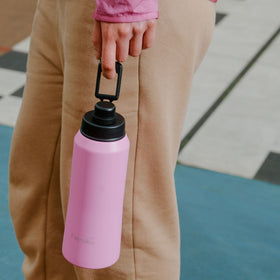
How to Treat Eczema and Dermatitis Naturally
Eczema, also known as atopic dermatitis, is a type of inflammatory skin condition that commonly appears in babies and toddlers. However, it can also occur in children and adults. Eczema causes the skin to become scaly, dry, reddened and itchy. It’s not contagious but recurs through the years, especially when triggered. Although it can be managed, there isn't a cure for it. There are different types of eczema. Some are more common during childhood, some more common during adulthood or old age. Regardless of the type, eczema and dermatitis can make life miserable. It's almost worse for children, because they don't understand that you can't scratch it. And of course, as a parent, you hate seeing your child miserable and in pain.

What causes eczema?
According to the National Eczema Association, children with a family history of eczema, asthma or hay fever, are more likely to develop eczema. But the causes of eczema are not fully understood. It's possible to develop eczema without any family history.
What triggers eczema?
You can ease eczema symptoms with good management, and also lessen your chances of a flare up. Knowing what triggers your eczema is the key to good management. Here are some common triggers that make eczema worse:- Dry skin
- Irritants
- Everyday skincare products
- Ordinary cleaning solutions
- Commercial surface cleaners and disinfectants
- Natural liquids such as fruit and vegetable juices
- Emotional stress
- Extreme temperature
- Sweating
- Infection
- Allergens
- Seasonal pollen
- Dust mites
- Pet dander from cats and dogs
- Mould
- Dandruff
- Hormones
Different people have different triggers. Knowing the specific irritant that is causing your eczema to flare up is key to making it more manageable for you. Keeping a skin diary can be helpful to work out what your triggers are.
How can you relieve eczema?
There are many different ways, including natural remedies, to relieve the symptoms of eczema. Management will vary depending on the triggers that aggravate your eczema.
Heat
Heat can make eczema worse, so you need to keep your skin cool. Try bathing in warm or cool (not hot) water. If you're showering, don't have hot showers. And avoid using soap as it can dry out your skin. Smooth some oil over damp skin as soon as you're out of the shower. Ideally, you should take a bath or shower two hours before bedtime.
Avoid direct sunlight, and stay in the shade. Plan any long car journeys. It may not be sensible to put the heater on in the car, as it may cause overheating. Take plenty of short breaks. Also, bring wet dressings and cool compresses to help manage symptoms of heat.
Overheating during sleep can cause your skin to itch. Cotton or bamboo bed linen is the best bedding for someone who has eczema. Try not to have woollen blankets next to your skin, as these can cause irritation. Plastic mattress protectors don't allow your skin to breathe, so avoid these. If you wake up at night or if you see bloodstains on your sheet in the morning, it may be a sign that you're scratching during the night. Using a good moisturiser may stop your skin from overheating and feeling too dry.
Dry Skin
Dry skin can aggravate eczema, so keep your skin moisturised all the time. Natural eczema remedies include applying plenty of hypoallergenic moisturiser like Weleda’s White Mallow Body lotion to the affected area after a bath. This product is specifically designed for eczema prone skin. If your skin is extremely dry, you can apply the cream several times throughout the day. If the affected area is around your face, you could try Weleda’s White Mallow Face Cream instead.
Allergens and irritants
Stay away from any known allergen or irritant that might cause your eczema to worsen. Get a good vacuum cleaner, and use it regularly to keep pet hair and dust to a minimum. Carpets can harbour lots of dust and dirt, so it may be better to go with wood or tiled floors as these are easier to keep clean.
For babies, the nappy area can be terribly sensitive if they have eczema. A combination of heat, wetness, and perfumes in some disposable nappies can be common triggers. Use a specific cream like Weleda's White Mallow Nappy Change Cream to relieve eczema symptoms, as well as protect and moisturise this area.
Keeping a food diary as well as a skin diary may help you to work out if there are certain foods that cause eczema flare ups.
Avoid skincare products using food ingredients
Be careful about using skincare products that contain food ingredients. There is some evidence that children with eczema are at a greater risk of developing food allergies. It seems that the breakdown in the skin barrier (which is what happens to eczema sufferer's skin), may contribute to an allergic immune response in food. Research shows that people with eczema have developed food allergies after using skincare products containing wheat, oats, peanuts and goat's milk. If you're concerned, talk to your healthcare practitioner before using a new eczema cream.










